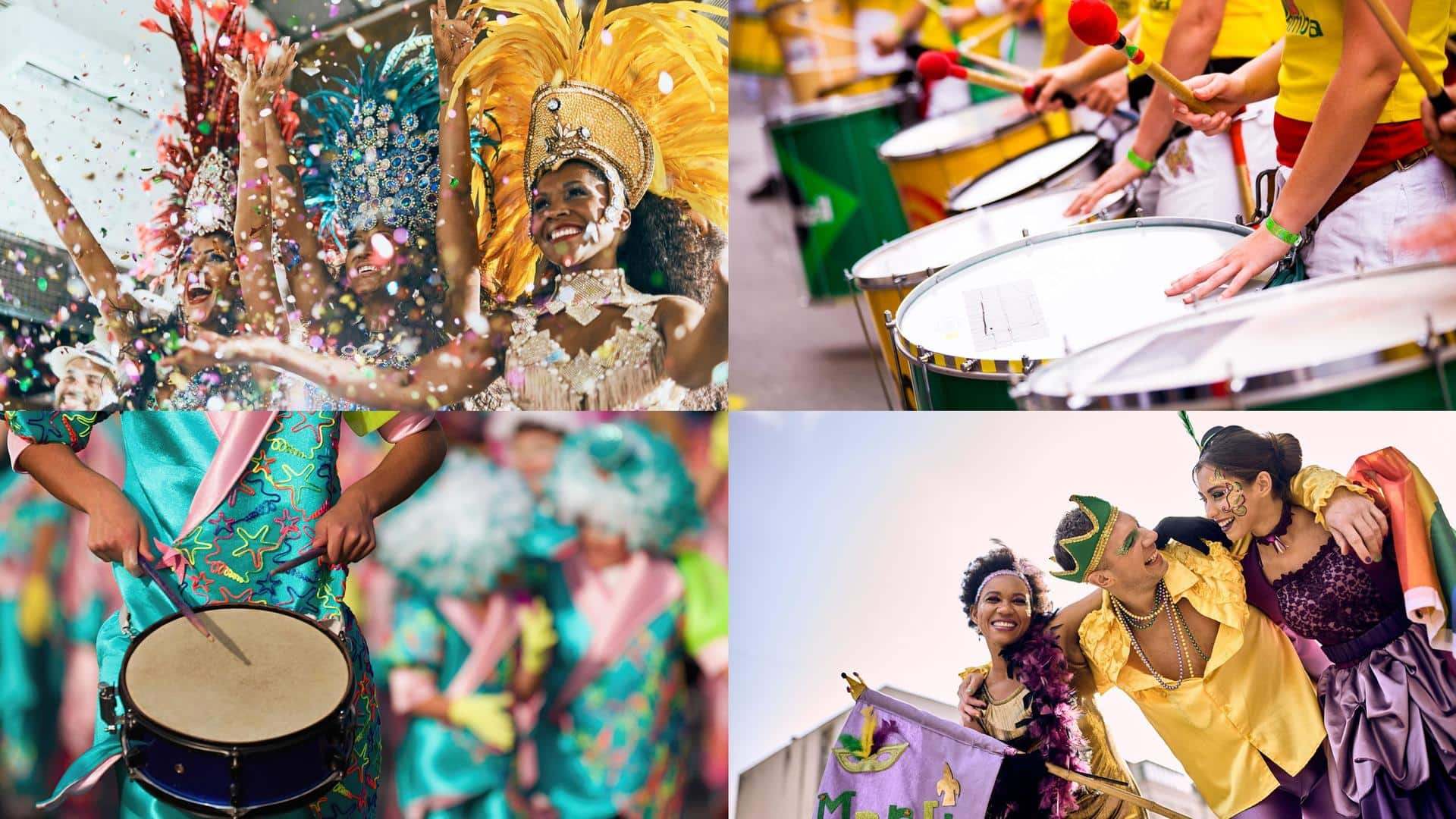
Rio Carnival 2023: World's largest Carnival festival begins today
What's the story
It's time for merrymaking and reveling in joy as the Carnival in Rio de Janeiro begins today, February 17. One of the most significant cultural events in Brazil and the biggest carnival celebration in the globe, it draws millions of visitors each year. Take a back seat as we take you through the specifics of this festival that will continue till February 25.
Carnival
What is the Brazil Carnival parade about?
The Rio Carnival is an annual festival that takes place just before the start of Lent in the Christian calendar. The Carnival is a vibrant and exciting celebration of music, dance, and culture. It is a huge event that lasts for several days where people come together and enjoy themselves and is quite a significant part of Brazilian culture and identity.
Highlight
The main event of the parade
The highlight of the Rio de Janeiro Carnival is the Samba Parade - a competition between various samba schools that takes place in the Sambadrome, a specially-built parade avenue. Each samba school designs a theme and creates elaborate floats, costumes, and dances. The parade is judged by a panel of experts, and the winning samba school is declared the champion of the year.
History
History of the Carnival
The history of the Carnival dates back to the early colonial period when the Portuguese first arrived in Brazil. It was influenced by European traditions, but African cultural influences became more prominent with the introduction of enslaved Africans. In the late 19th century, samba music and dance emerged as defining elements of the Carnival, and the Samba Parade became the centerpiece of all festivities.
Religion
The religious significance of the Carnival
In the Christian tradition, Carnival is celebrated just before the beginning of Lent, a period of fasting and sacrifice leading up to Easter. The word "Carnival" itself comes from the Latin "carnelevare," which means "to remove meat." During Lent, many Christians abstain from meat, so Carnival was traditionally a time to indulge in feasting, drinking, and merrymaking before the Lenten season began.
Culture
Cultural significance of the Carnival
In Brazil, the Carnival also has strong cultural and historical significance. The celebration has become a way for Brazilians to express their identity and cultural heritage, with influences from the country's diverse history and multicultural society. It is a time for citizens to come together, dance, sing, and celebrate their shared cultural and national identity.